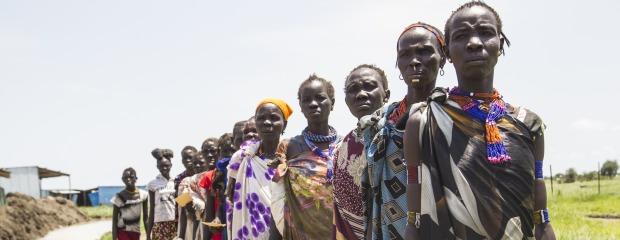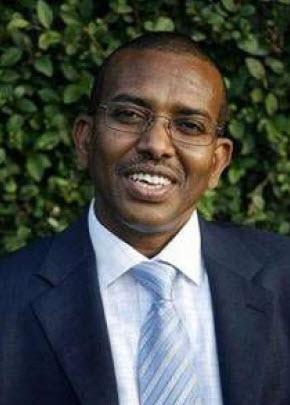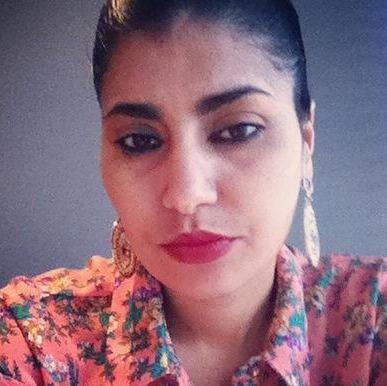South Sudan’s slow liberation – By Edward Thomas


A queue to register for UN-provided food aid in Pibor Town, Jonglei, South Sudan (UN Photo Library/Martine Perret).
South Sudan’s vice president Riek Machar was sacked in 2013 and after a political crisis that year, he ended up in the bush leading an armed rebellion that has turned into 13 months of civil war. When he received journalists in his bush headquarters, he displayed his latest reading to them: Why Nations Fail, by economist Daron Acemoglu and political scientist James Robinson.
It is a catchily-written economic history of world inequality with cover endorsements from five Nobel laureates. Why Nations Fail argues that unrepresentative governments create extractive institutions that are recipes for nation-failure.
Nations with inclusive market institutions based around private property, backed by strong governments with the rule of law have the recipe for success. Most countries get it wrong because they have extractive elites; looters who rig the markets and the law.
Other countries get it wrong because they have no government at all – no legal system to make private property into a social reality. World inequality exists because these two kinds of nations get it wrong. The book argues that it’s nations which fail – and barely engages with the argument that the world system might be rigged against some of them.
Some journalists chided Riek for reading economic history rather than reflecting on the child soldiers in his camp, or the corpses on his battlefields, or indeed the way that he and other defunct politicians had summoned up the apocalypse in what seemed to be an argument over government posts. But none of them complained that he was smoking the same dope as the neo-classical economists.
At the time of writing I was smoking a different kind of dope. I didn’t think that the South Sudanese nation could fit into the neat little templates set out in Riek Machar’s book. I do however think that those kinds of templates often influence assumptions about places like South Sudan – not least because South Sudan is easy to misunderstand.
It has the longest history of modern government of any part of the African interior. But because it’s underdeveloped – hyper-underdeveloped in fact – many people believe that it has never had any state at all, that it is a tabula rasa, or a nasty brutal state of nature, or a global victim of everything.
These claims are half-truths at best: South Sudan has the longest history of integration into the international economic system of any part of the African interior too. In the 1840s, international free trade treaties forced the introduction of credit finance and privatization on South Sudan, leading to a dramatic increase in the hitherto state-operated slave trade.
But alongside this intense exposure to modernity, many South Sudanese societies managed to keep hold of their powerful democratic traditions until well into the twentieth century. Most societies had no palaces or prisons. No private property, just a tangled network of social reciprocities illegible to most outsiders. Social and economic life organized around group solidarities, mediators and problem solvers instead of generals and kings.
When the slave trade was privatized, profits could be had in South Sudan. But after it was half-abolished, and renationalized, South Sudan’s government could only exist on subsidies from governments in Khartoum. One of the reasons why people think that there’s no state history in South Sudan is that the state was not able to mobilize the productive resources of society, which worked well without money.
Government depended on subventions from London, Cairo or Khartoum, not on taxes. It towered over local societies, it fought them, it tried to tame them, but it did not invest in them, or reap their investments.
Why did I bother with all these questions, in my new book on a country in crisis? Why think about these things, instead of the child soldiers and the corpses and the politicians genning up on the meagre insights that institutional economics offer the African continent?
When I began researching a couple of years ago, I was commissioned to write about the bloody tangibilities of conflict for the UN. They wanted information about the violence that was plaguing Jonglei state, a muddy and mutinous hinterland of the newly independent republic of South Sudan.
It was weirdly tenacious violence. Jonglei had been at the heart of anti-colonial resistance up until the 1930s, and was at the heart of the civil wars in South Sudan that began in the 1950s.
When the civil wars pitting Southern liberation movements against the Khartoum government ended in a peace deal in 2005, the violence in Jonglei got worse. And when South Sudan became independent in 2011, that just seemed to stoke it even more.
The violence pitted pastoralists from one ethnic group against another – and just about every commentator talked of it as ethnic or tribal. And I felt very unhappy with that – it’s not just that ethnicity-first explanations are unsatisfying, it’s also that they make you feel hopeless.
We’ve all got ethnicity, after all, we all belong to languages and cultures and systems of kinship, and it’s not like that any of us can just get rid of our ethnicity. The changes need to be found elsewhere.
So that was part of the reason I ended up thinking about how South Sudan’s past generated violence and inequality and things that might one day be changed for the better. And that all led to the questions raised in the book that Riek was reading, about why nations fail, why world inequality happens, and how you can liberate yourself from failure and inequality when you fall into it.
The magnificent simplifications in Riek Machar’s book shape the assumptions of many actors, probably including Riek himself. But I don’t think that they are relevant to the big question – how could South Sudan free itself from its predicament?
First of all, private property hasn’t really developed in South Sudan, because the main productive resources – land and water – are still mostly held in common. Money is scarce – even before the current civil war, most Jonglei households used money less than once a week.
This is a problem for the mainstream economists, who often underestimate the violence that precedes the establishment of the rule of law and private property and the market, and who have few analytical tools that work in that violent prelude. But it’s also a problem for leftist liberation movements too. No property means no class struggle, no sloganeering about returning the land to the tiller.
And it’s a problem for the South Sudanese state, left or right. In the UK and elsewhere, the state spends most of its time tinkering with money and property and production. But in South Sudan, the state can’t do most of these things.
Instead of aligning its interests with the productive capacities of society, the state gets resources from outside and allocates them – mostly to politicians and soldiers, and then the rest mostly in government wages. Until 2005, the resources came from the governments in Cairo, London or Khartoum, very parsimoniously.
After 2005, the resources came from oil revenue, which made the South Sudanese government one of the richest in the region. But the state couldn’t really do “˜development’ in a conventional sense, because it couldn’t intervene meaningfully in the economic life of most people.
Instead of finding economic groups and interests to invest in – small businessmen, or factory workers, or fat cats – the government doles out small amounts of money in wages. And because there aren’t clear economic interest groups, this government like every single government before it, organizes its relationship with the population around ethnicity. It makes local communities into tribes, it appoints chiefs over them, and it taxes and consults them through those chiefs.
There’s something inevitable about governments manipulating ethnic structures to get things done in a country without an industrial or commercial base, but this approach has lots of drawbacks. The government’s main method for intervening in local economies is the government payroll – the army and the civil service. Outside Juba – where most of the money stays – most of the payroll is spent in provincial or garrison towns where the jobs are.
Not much of these wages gets to places like Jonglei. It is one of six states in South Sudan where a form of wetland agro-pastoralism is practiced, and people traditionally lived off grain, milk and fish, and kept herds as insurance against the unpredictable climate.
Before the civil wars, people organized their economies around social reciprocity instead of money, and they had a lot more calories than they have today. By 2009, that economy had been replaced with something more hungry and less predictable.
Some people got relief food. Most people had to buy food – but most saw cash less than once a week. For a minority, guns became an adjunct means of production.
People disarmed in 2006 had their cattle looted from them, and got guns, and looted cattle in return. Some raids mobilized thousands of young men, and although raiders targeted all communities including their own, inter-communal looting caused the most terrible losses.
Jonglei’s cattle economy and its social basis was transformed. Young men became more powerful, and girls and patriarchs lost out, as socially owned cattle were stolen and sometimes even sold.
This intense violence helped to spread markets and cash. The pastoralism crisis created a new kind of armed youth movement, built around ethnicity, with military and economic functions. The rebellion could not have got off the ground without them.
So one reason for writing about South Sudan’s history and economic systems was a way to understand the violence going on there. Another was personal.
I’ve worked in South Sudan and Sudan as a teacher, a human rights worker, a researcher and even at the end a political affairs officer and all that left me feeling pretty useless to be honest. There I was out in the mud of Jonglei, sticking my nose into other people’s politics without ever trying to use their political system to do something worthwhile.
It was like I had traveled out of a comfortable London life to watch the violent politics, and then fly back to London to hum and haw about its causes. And I started wondering about the connections between the two places, whether the systems complicating lives in Jonglei had anything to do with the system I was living in. If there is a connection between the systems over there and over here, maybe it would be possible to get involved in changing things. I’m not sure I answered that question.
Edward Thomas’s new book South Sudan: a Slow Liberation was published this month. He has worked in Sudan and South Sudan for over eight years as a teacher, human rights worker and researcher.






i Dr.Riek was right about all . i agree that gov of s.s did not understood the public tenssion,neither their need, nore what nation of S.S wanted.